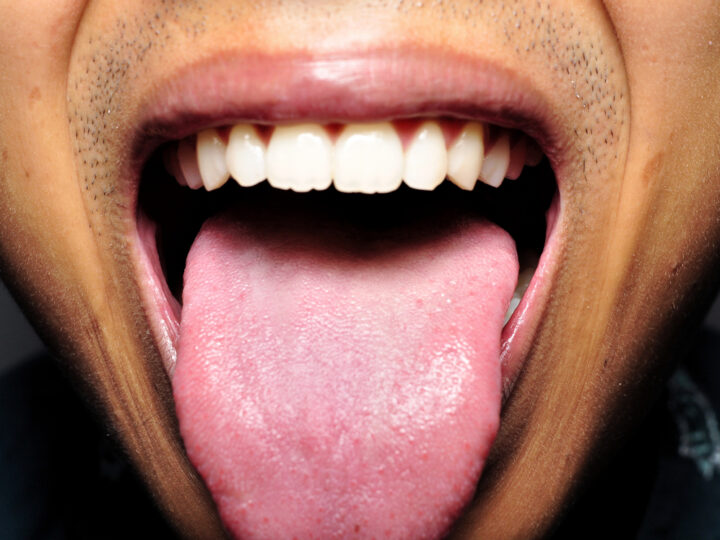YOUR GUT IMPACTS WAY MORE THAN YOU THINK
And What Eastern Medicine Has To Say About It

In the West, it’s a common practice to treat all your symptoms and ailments with prescription and over-the-counter drugs. That’s all well and good, but now, health communities and medical experts are shifting their focus to gut health.
Why? Because experts are discovering more and more just how closely your gastrointestinal (GI) tract — or “gut” — is tied to your overall health. In other words, we now know that the state of your gut health can be both the cause and remedy to a host of chronic diseases and symptoms.
While gut health is just now entering into the conversation in the West, it’s been a focal point of Eastern medicine for centuries. Below, we talk more about your gut health, why you should care, and what you can do to keep your gut happy and healthy.
What Science Has to Say About Gut Health
 The health and vitality of your GI tract can cause or combat chronic disease, which is why it’s becoming a hot topic in the health world. Aspects of your health that seem to have no connection to your digestion — like your immune system, emotional stress, or even cancer — can be linked to your gut health. So, if you’re experiencing some abrupt or ongoing health problems, your gut health is a likely culprit.
The health and vitality of your GI tract can cause or combat chronic disease, which is why it’s becoming a hot topic in the health world. Aspects of your health that seem to have no connection to your digestion — like your immune system, emotional stress, or even cancer — can be linked to your gut health. So, if you’re experiencing some abrupt or ongoing health problems, your gut health is a likely culprit.
To see for yourself, here are just a few ways your gut is inextricably tied to your overall health:
Your Gut and Anxiety
This article from Harvard Medical School discusses the gut-brain connection and how your GI tract is sensitive to emotions, which can trigger digestive symptoms in your gut. Not to say that pain in your gut is psychological.
Rather, emotions, like stress or depression, can actually cause movements and contractions in your GI tract. Given this connection, learning to manage your stress can actually improve digestion issues.
Further, most of the serotonin in your body is actually made in the gut rather than the brain. And serotonin keeps you happy and relaxed.
Your Gut and Cancer
Your gut consists of bacteria that make up your microbiome. These bacteria are sustained by your diet and break down the nutrients in your food. While your gut doesn’t “cause” cancer, what you feed it can.
One study suggests that “the gut microbiota influences both the therapeutic activity and the side effects of anticancer agents.” In other words, maintaining a healthy diet can decrease the likelihood of cancer over time, as it contributes to a healthier, more robust microbiome.
Your Gut and Obesity
 Numerous studies show the connection between gut health and obesity. For example, one study found that human fecal matter with “low bacterial diversity” (more on that below) — a.k.a. dysbiosis, or an “imbalance of the microbiome” — is “associated with more marked overall adiposity and dyslipidemia.” The former is obesity, and the latter is a condition that increases your chances of clogged arteries, stroke, and heart attacks.
Numerous studies show the connection between gut health and obesity. For example, one study found that human fecal matter with “low bacterial diversity” (more on that below) — a.k.a. dysbiosis, or an “imbalance of the microbiome” — is “associated with more marked overall adiposity and dyslipidemia.” The former is obesity, and the latter is a condition that increases your chances of clogged arteries, stroke, and heart attacks.
Your Gut and Your Immune System
Studies link your gut to your immune system, too. In fact, your gut helps regulate your immune system to keep you safe. Without getting too scientific here, your microbiota actually generates what’s known as “antigen presenting cells” (APC).
These intestinal APCs play a key role in your immune system in that they can protect your body against infections while still maintaining immune tolerance. In other words, they prevent autoimmune diseases from happening and keep your immune system in good working order.
Diversity Is Important — Especially in Your Gut
Earlier, we mentioned “low bacterial diversity.” It’s a fancy term which basically means you’re eating too much processed foods, proteins, sugars, or food additives. Too much of the same bad stuff is bad for your gut, and creates a microbiome that lacks diversity.
Notice a trend here? Keeping your gut happy means supplying it with diverse bacteria, which will result in a stronger immune system and help you stay healthy over time.
Eastern Medicine and Gut Health
 Eastern medicine and TCM practitioners recognized the connection between your gut and your overall health centuries ago. In TCM, though, they picture the role of your digestive process a little bit differently.
Eastern medicine and TCM practitioners recognized the connection between your gut and your overall health centuries ago. In TCM, though, they picture the role of your digestive process a little bit differently.
It goes like this:
- Consumed food is processed by the Stomach organ-meridian
- There, it is broken down into ‘pure’ (nutritional) and ‘impure’ (unhealthy) components
- The pure stuff is directed to your Spleen organ-meridian system, where it’s converted into Qi and other nutrients
- The impure stuff is directed to your Small and Large intestine
Given this process, TCM claims that the health of the Spleen and Stomach qi is the root of long-term health. For this reason, specialists target the GI tract when treating chronic disease, and they’ve done so for centuries.
Here’s How You Can Keep Your Gut in Check
When trying to keep you healthy, eastern medicine’s first port of call is your gut. Take care of it, and it will take care of you. Here are some ways you can do just that:
1. Eat a Rich Fiber Diet
Diet is key, and fruits and veggies are a great source of nutrients for a healthy microbiota. They’re rich in fiber, which helps good bacteria grow and decreases the prevalence of disease-causing bacteria.
2. Eat More Fermented Foods
Fermented foods promote the growth of good bacteria, specifically lactobacilli, which are “friendly” in that they help you fight off a range of health issues ranging from eczema to diarrhea and even stomach pain.
Good foods to turn to include:
- Yogurt
- Kimchi
- Miso
- Sauerkraut
- Kefir
- Kombucha
- Tempeh

3. Experiment With Chinese Herbs
Chinese herbs are used to treat tons of health issues, and they’re beneficial for your gut, too. The goal of chinese herbs is to create balance in your gut. Don’t expect instant miracles though. Chinese Medicine takes a slow and steady approach to naturally readjust your system to the right balance. Looking for an easy to use option? Try this herbal tincture
4. Take Probiotic Supplements
Taking probiotic supplements is a great way to temporarily diversify your microbiome. Probiotics are live microorganisms you consume that have specific health benefits. Their effect is most noticeable when taken by “unhealthy people.” In other words, if you suffer from a disease, you might take probiotics to restore your microbiota to a healthier state. Quality, quantity and diversity count, so stay with reputable, broad-range probiotics that come with their own prebiotic “food.”
Wondering how else to keep your gut health in check, or struggling to improve your digestion? Speak with one of our Eastern medicine experts so they can help create a custom wellness plan for you.
Comments (0)
Leave a reply
You must be logged in to post a comment.




